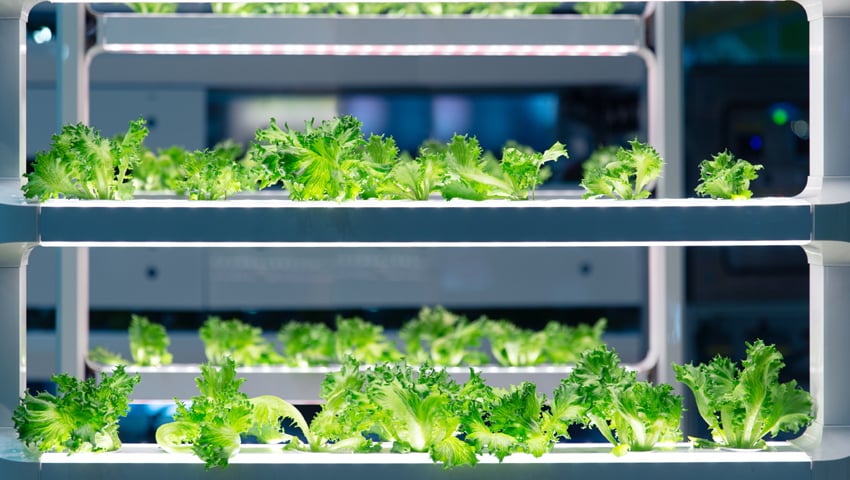Agri-tech is set to accelerate innovation and growth in the UK’s agriculture and food industries, as over half of UK food industry businesses (51%) say adopting new technologies is a key business priority as they look ahead to the next five years, while one in four (25%) agriculture business leaders say it’s a top priority. Nearly half of decision-makers in the combined agri-food industries (48%) say there are stages in their supply chain where innovation or investment are lacking.
The findings are from the new Future of Agri-Tech Report that surveyed 200 R&D and technology decision-makers in the agriculture and food industries to mark the launch of the new UK Agri-Tech Centre, the UK’s largest dedicated agri-tech organisation. The UK Agri-Tech Centre commissioned the research to better comprehend agri-food businesses’ priorities in order to inform its strategy to drive agri-innovation at unprecedented levels.
Growth and expansion of their core business is the key business priority for 58% of agriculture and food business leaders over the next five years, followed by becoming more sustainable (40%).
Appetite to explore new technologies including AI and machine learning
In line with their key business priorities, 40% of agri-food businesses want to explore new technologies relating to sustainable production, 38% food security and 31% resilient food systems.
Twenty-eight per cent of agri-food industries want to explore the potential of AI and machine learning to support their business. Just over one in four (26%) agri-food businesses want to explore robotics and automation, which was one of the best-performing areas of agri-tech in 2023, with global investment in farm robotics and mechanisation increasing 9% year-over-year to $760 million.
Access to funding is impacting tech innovation and implementation in the sector
The research found that access to funding is the biggest hurdle to developing and implementing new technologies for the agri and food industries, with four in ten (39%) R&D and technology leaders saying this has been a key challenge. This is followed by a lack of resource and time (38%) and attracting investment (27%) as the top three most common barriers to agri-tech development and adoption.
New UK Agri-Tech Centre will accelerate innovation and boost growth
The formal merger of the UK Agri-Tech Centre this month sees the creation of the largest agri-tech organisation in the UK, with core funding from Innovate UK. The new business will strengthen and build connections between science, business and funders to accelerate research and development, and connect businesses to funding, world-class knowledge, expertise, facilities and collaborators to accelerate progress and boost innovation across the agri-systems supply chain.
The UK Agri-Tech Centre will be a gateway for funding programmes through its strategic programmes Connect, Inspire, Grow, Adopt, which provide a framework for accelerating innovation by taking solutions from idea to impact.
Phil Bicknell, CEO of the UK Agri-Tech Centre, said, “Agri-tech can unlock solutions to many of the major issues facing the agriculture and food sector and the UK’s food security challenges. As the UK’s largest agri-tech organisation, we can now help more businesses access funding and play a key role in de-risking investment for private funders by strengthening the connections between science and R&D to deliver an adoption pathway for commercial solutions.
“Through focusing on key strategic themes of innovation for resilient systems, sustainable production, one health and intelligent agriculture, and by taking a systems-wide approach and creating greater cross-sector working opportunities and collaboration, we believe that agri-tech can ultimately secure the UK’s supply of food, fuel and fibres and stimulate economic growth.”
